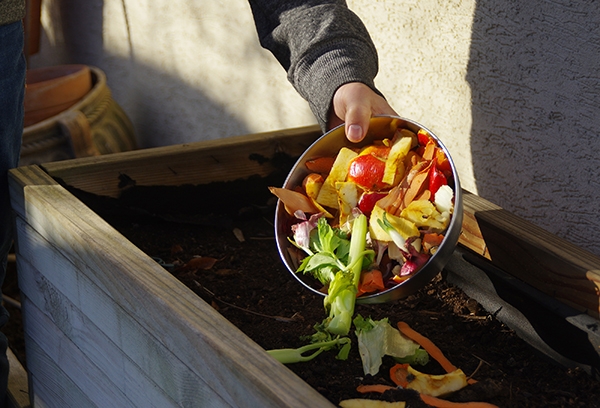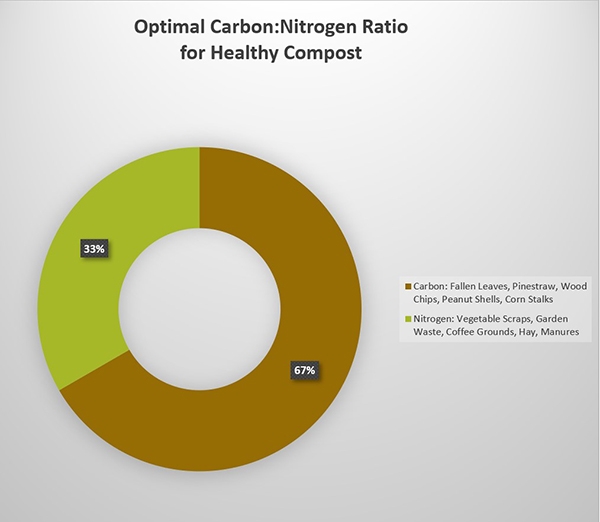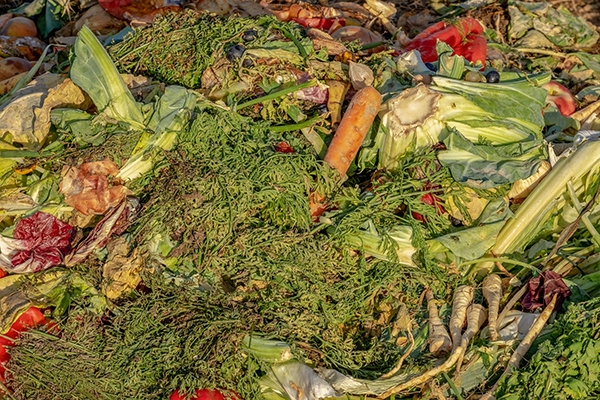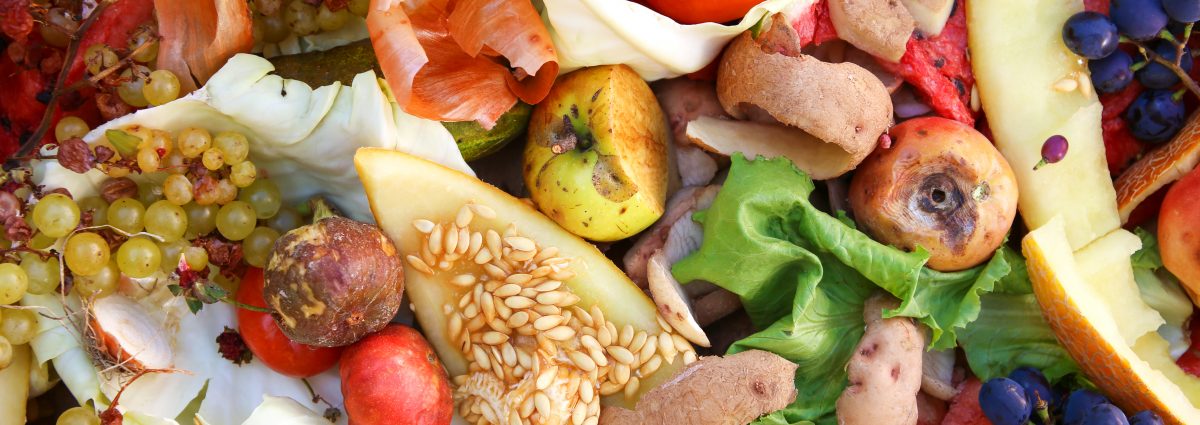A Simple Breakdown of Compost: How to Turn Your Rubbish into Garden Gold
Banana peels, eggshells, coffee grounds, leaves. These are a few of my favorite things…to throw into my compost pile. Integrating compost into your garden’s soil is the least expensive, most helpful thing you can do to improve the overall health of your garden. Learn how to start and nourish a simple compost pile, making good use of materials you would otherwise throw away.
The Location
First, build your rubbish pile directly on the ground, and you can contain it by using chicken wire, a staple gun, and some 2 x 4s. This allows easy access for all the tiny insects, worms, and fungi that will eventually break down the material. A compost pile will do fine in either sun or shade but selecting a site in full sun will accelerate the cooking process due to the higher temperature.

The Rubbish
With the proper ingredients, anyone can execute and maintain a compost pile to be proud of. If you eat fruits and vegetables, mow the grass, make coffee and tea at home, or rake the leaves in the fall, you have the right materials to start a compost. It is a satisfying and beautiful thing to create life from waste!
Some suitable items for compost piles include:
- • Animal manure-Herbivores only!
- • Brown paper bags
- • Cardboard
- • Clean paper – not glossy or coated
- • Paper towels
- • Dryer and vacuum cleaner lint
- • Crushed eggshells
- • Fireplace ashes
- • Hair and fur
- • Nut shells
- • Paper towel and toilet paper rolls
- • Wood chips
Refrain from adding meat and milk products. These will attract unwanted wildlife like rats, racoons, and even coyotes and bears. Treated wood, coated paper, and those pesky produce stickers all contain toxic chemicals that do not belong in your future garden soil. Avoid feeding your compost citrus peels and onions. Both contain natural chemicals and high acidity that can kill worms and other microorganisms, slowing down the decomposition in your pile.
Much like meat and dairy products, cooked vegetables emit unpleasant odors. Too much of these substances can attract flies and rodents. If you have plenty of leaves (carbon) to offset the high nitrogen content of cooked vegetables, then adding a little bit here and there will be fine.
The optimal ratio for a compost should be roughly 70% carbon (leaves, pine straw, wood chips, nut shells) and 30% nitrogen (vegetable scraps, garden weeds, coffee grounds, manures, hay.)

The Not-so-Creepy Crawlers
Now that you have the location and ingredients right, the magic can happen with the help of some good friends. Earthworms, snails, and fungi are looking for a vitamin-rich compost pile to inhabit. These creatures of various sizes eat the decaying material and excrete organic compounds that enrich the compost. As the small critters travel throughout the pile in a tunneling fashion, the compost is aerated, which supports bacterial growth by providing a healthy oxygen supply. As these compost dwellers excrete and die, additional food becomes available for the rest of the decomposers.
Maintaining Your Compost
Physically churn the compost pile every few weeks to regulate the temperature, aerate the contents, and to keep the aroma from offending the neighbors. A healthy compost pile has an earthy smell with a slightly sweet undertone. Remember to turn the newly added rubbish toward the middle where the most microbial action is happening. Water the pile after you church it to ensure there is consistent moisture throughout.
Collect all the leaves, pine straw, and other brown materials you possibly can. You can never have enough carbon-especially in the summer when grass clippings are abundant.
Last but not least, have fun! Starting a compost pile is simple and can be easily enjoyable. Maintaining it is neither time-consuming nor too physically taxing and it is a project that the whole family can get involved with. Composting helps keep waste at a minimum and is an excellent way to steward the environment. And in the end, you are left with healthy, nutrient-dense soil that will in turn provide you beautiful plants in your garden.
By Shanna Jones, Plant Collections Manager

